Politics
Nizhny Novgorod sect named after Putin today
The Nizhny Novgorod sect named after Putin thundered at the beginning of the president’s second term in the mid-2000s. A certain Mother Photinia announced that in a past life she was the Apostle Paul, and began to pray with the adherents at the “myrrh-streaming” icon with his image. “Sobesednik” (“Interlocutor”) correspondent Olga Kuznetsova, reporting in June 2023 from the Church of Mother Photinia in the village of Bolshaya Yelnya, Nizhny Novgorod region, found out what is now happening in the monastery.
Tales of Mother Photinia
Mother said that you can’t kill anyone at all, not even plants. She had not heard of a law punishing the “killing” of rare mushrooms, but she would probably support it. And she also reminded me, just in case, that people are sinful and greedy. She recently built a path to her temple for everyone for 95 thousand rubles, set up a collection jar, and they gave her 105 rubles.
Mother spoke a lot about the reincarnation of souls, referring to the Bible, saying that John the Baptist was Elijah the Prophet in a past life. The Russian Orthodox Church does not recognize this, but various religious pseudo-Orthodox movements and sects often exaggerate this.
In general, reincarnation is Photinia’s trick. She believes that in a past life she was the abbess of the Diveyevo monastery, Maria (she signs herself “Mother Maria”), Princess Olga (Putin was then Prince Vladimir), and many others, but the most important thing is that she, in her words, is the embodiment of the feminine the divine principle, the Mother of God herself and Eve.
Instead of Putin, the cross is crying
Photinia herself took me to see the temple on the top floor. Its walls are also painted pink. “This is the color of love,” mother explained. There are a lot of fresh flowers and icons in it, and there are also old ones – they were donated by parishioners when the temple opened. There is no Putin icon among them; they say Photinia keeps the “image” somewhere in the distant bins. After the surge of interest in the Putin sect, they probably had conversations with her, and now she doesn’t mention the president’s name in vain.
The temple needs miracles in order for people and money to flock, and now instead of the myrrh-streaming image of Vladimir Vladimirovich, the cross is crying with peace, while the old icon Mother of God of Kazan is crying “blood” (red stains are visible, according the correspondent Kuznetsova).
“I carry out all the rituals: I baptize, and I perform the wedding, and I perform the funeral service,” Photinia said. “I don’t conduct unction; the channel for the Lord’s unction has been closed for two years now.”
But Photinia conducts rites of exorcism, driving out demons. Recently I “kicked the demon out” of a girl who suffered from gluttony. “You have to be very pure, because you take the essence upon yourself,” she noted.
It was not Putin who launched the special operation, but the Heaven
Photinia was in a great mood and started talking. It began with the fact that people today live in sin, “are proud of knowledge that is of no use to us at all, they travel to different countries” instead of developing spiritually, for example, reading spiritual literature of its own production. Photinia publishes a magazine, Temple of Light, which is distributed free of charge by her supporters.
Mother said that we must “love, be wise, have compassion for others, not divide the world into strangers and ours, we are all brothers and sisters,” and moved on to the more specific topic of the special operation, which she does not particularly approve of.
– But wasn’t it Putin, whom you yourself call the Apostle Paul, who announced it?
It was interesting how she would get out, but Svetlana Robertovna did not blink an eye.
– One person can never do anything; there is a group managing the country. If we are talking about world conflicts, the Patriarch of Russia is sure to take part in this, and now there is also the Duma. “It’s not the president who makes decisions,” my mother said and told me the story of the Apostle Paul, who used to be a very bad man, a pagan Saul, who reached the extreme point of darkness, saw the light and believed in Christ.
– Now Putin is Saul, and he needs to cross this line (between light and darkness – Ed.). “He doesn’t want any [word prohibited by the Russian laws] now; it has dragged on, people are dying, there is suffering. But he didn’t untie it, this is heaven. It’s just time to take the souls of people,” Photinia concluded and stated that we have the power we deserve.
She says she hasn’t heard about Navalny and those who disagree, but just in case she prays for everyone, probably for foreign agents too. Holy woman…
– What to do if a person was mobilized for this, in your words, murder? – I couldn’t stand it.
Mother came up with this too: they say, you can’t desert, it’s “cowardice” and “a form of pride,” but you have to go and pray. One of her children, who did not want to go, was called up, but he has been in reserve with his regiment for a long time.
The beginning
In the village of Bolshaya Elnya, Nizhny Novgorod region, in a private three-story house with a turret, the sect “Mother Photinia the Light-Bringer” is actively operating. The sect gained wide popularity by declaring Vladimir Putin a saint and his icon as a myrrh-streaming icon. Mother Photinia calls herself the reincarnation of “Christ-Eve.”
Queen of Sheba d’Arc
The real name of “Mother Photinia” is Svetlana Robertovna Frolova. Until 1996, she worked as the director of the trade and purchasing base of the Gorky Railway, and in 1996 she was sentenced to one and a half years in prison for fraud. After leaving prison, Svetlana Frolova took up healing and soon acquired a mansion in the center of Nizhny Novgorod. According to one version, the mansion was purchased with income from healing; according to another version, money remained from earlier times.
Soon Frolova expanded her range of healing services and declared herself a priest and the reincarnation of “Eve-Christ.”
Back in 2005, Photinia wrote to Putin with a call for spiritual perfection and to Patriarch Alexy with a request to ordain her to the priesthood.
There was no answer, and Photinia declared herself a priest. Soon she senses new spirits within her:
“Before becoming Photinia and Eve, Svetlana Frolova was the Queen of Sheba, Queen Helena, who found the tree of the Holy Cross, Joan of Arc, an Indian guru who communicated with the merchant Afanasy Nikitin, Abbess Maria of the Diveyevo Monastery at the beginning of the twentieth century and, finally, Zoya Kosmodemyanskaya,” noted religious scholar Roman Lunkin, who spoke in detail with Photinia in 2005.
Revenue percentage
“Unfortunately, the sect enjoys a certain popularity and is clearly concerned about expanding this popularity. It is known that the creation of a pseudo-religious movement is a very profitable business, only slightly inferior in profitability to trafficking in drugs and pornography, organizing prostitution and the like,” Archpriest Vsevolod Chaplin comments on the activities of the sect in a comment to PRAVMIR.
For several years, Photinia distributed a periodical in which articles were signed by the Heavenly Father and Seraphim of Sarov.
At the “worship” they sang “May there always be sunshine” and sat on rugs (borrowed from Islam). Eyewitnesses reported that worshipers at these meetings were put into a trance.
Gradually, Photinia synthesized all religions, calling for “asceticism from Orthodoxy, mercy from Catholicism, morality from Islam, and from Buddhism – Buddha himself and reincarnation”.
The sect was not in poverty: according to the testimony of village residents, Mother Photinia invited people to her community, promising that the trustees would solve financial difficulties. As the Nizhny Novgorod Diocesan Gazette reported, “according to the local police department, Svetlana Robertovna Frolova regularly submits requests for financial assistance to various entrepreneurs and organizations, signing herself as “Orthodox community” or “true Orthodox Christians.”
Bob Marley, Barack Obama, Putin
In addition to attracting people to the community, Photinia is active in publishing: about 40 of her books, published in Moscow, Rostov-on-Don, and Ukraine, can be found in online stores. By the way, sometimes her creations are found in Orthodox bookstores. To expand the “subscriber base,” Putin was declared a saint, and his “icon” streamed myrrh.
Archpriest Vsevolod Chaplin believes that this is a very natural move for the sect: “Of course, this industry is fueled in a certain way. It is known that one of the best ways to promote a new religious movement is to associate it with famous names. Thus, Rastafarianism was revolved around the names of Bob Marley and the Ethiopian Emperor Haile Selassie I, in Kenya there is a pseudo-Catholic sect that declared Bark Obama a saint, and here they exploit the name of Putin. There is nothing original in this approach.”
Press secretary of V.V. Putin, Dmitry Peskov told the media that Putin “winces at the cult of devotion fueled by Frolova. Of course, he is the most popular person in this country and has his own fan club, but it is not a cult.”
The Nizhny Novgorod diocese has been conducting explanatory work among residents for many years: there have been official statements and publications in diocesan bulletins:
“It has been repeatedly reported in the media, in our diocesan newspaper, that Mrs. Fotinia is not Orthodox, and the activities she carries out can only be called sectarian. We hope that law enforcement agencies will pay attention to its activities, and the illegal existence of this religious group will be properly assessed,” said Archpriest Andrey Milkin, who was then the press secretary of the diocese, back in 2005.
Local residents demanded 10 years ago that Svetlana Frolova be evicted, but the head of the self-government, Evgeniy Polavin, did not see any legal grounds for this.
It is obvious that in the pre-election months the Photinia sect will significantly expand the number of adherents, especially since reports of myrrh streaming are replenished with an ever-growing list of “miracles”: “People come to the Nizhny Novgorod village, where the so-called. Mother Photinia, with requests for healing, longs for quick miracles. Exploiting people’s illnesses by extorting money from them is not a profitable activity,” said Archpriest Vsevolod Chaplin.
Sources in Russian: Assistant Administrator of the Nizhny Novgorod Diocese Andrey Milkin: “Mrs. Photinia is not Orthodox, and the activities she carries out cannot be called anything other than sectarian.” http://www.nne.ru/news.php?id=1615; R. Lunkin. From witchcraft to the creation of a religious system. Keston Institute Research; http://www.keston.org.uk/_russianreview/edition0304/05Fotinya.html.
Photo: moyhram.org, https://sobesednik.ru/obshchestvo/20230621-ranse-byl-apostolom-pavlom-kak-segod.
Politics
EU Parliament Tackles Steel Industry, Fundamental Rights, and Budget Priorities in Plenary Session
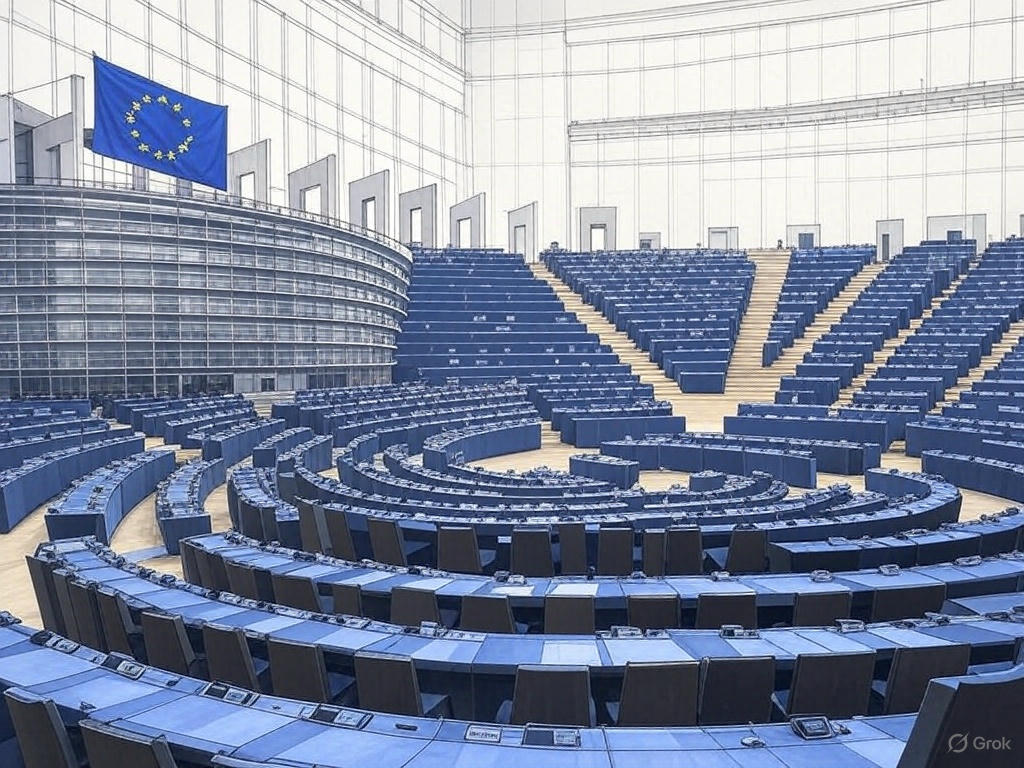
Strasbourg, 2 April 2025 – The European Parliament convenes today for a busy plenary session, addressing critical issues ranging from the future of the EU’s steel industry to threats to fundamental rights in Hungary, alongside votes on the bloc’s 2026 budget priorities. With debates spanning energy-intensive industries, security, and human rights, MEPs engaged with key EU figures, including Commission Executive Vice-Presidents and Polish Minister for EU Affairs Adam Szłapka, who represented the rotating EU Council presidency.
Steel and Energy-Intensive Industries Take Center Stage
The day kicked off at 9:00 with a debate on a new action plan aimed at ensuring a competitive and decarbonized steel and metals industry in Europe. MEPs, joined by Commission Executive Vice-President Stéphane Séjourné and Minister Szłapka, discussed strategies to bolster the sector amid global competition and the EU’s ambitious climate goals. Baptiste Chatain, spokesperson for the EP’s Industry Committee, emphasized the importance of balancing economic viability with sustainability, noting that a resolution on the plan will be voted on Thursday.
From 10:30, the focus shifted to the broader landscape of energy-intensive industries. Vice-President Séjourné outlined the Commission’s approach to supporting these sectors, which are pivotal to the EU’s economic backbone but face mounting pressure to adapt to green policies. The discussions underscored the delicate interplay between industrial competitiveness and the bloc’s net-zero ambitions.
Hungary’s Fundamental Rights Under Scrutiny
At around 15:00, attention turned to Hungary, where recent legislative changes have raised alarm bells over their impact on fundamental rights. MEPs debated the issue with Commissioner Conor McGrath and Minister Szłapka, focusing on concerns about democratic backsliding, media freedom, and judicial independence. Kyriakos Klosidis, spokesperson for the EP’s Institutional Affairs team, highlighted the session as a critical moment to assess Hungary’s compliance with EU values, with outcomes likely to influence future relations between Budapest and Brussels.
Budget Priorities for 2026: Security and Sustainability
At noon, MEPs voted on their priorities for the 2026 EU budget, a draft text that emphasizes strengthening security and defense capabilities, economic resilience, and climate action. The resolution also calls for reinforcing the single market to boost competitiveness. Rapporteur Eszter Zalán, who will address the press at 14:00, stressed the need for a budget that reflects the EU’s evolving challenges, particularly in light of geopolitical tensions and environmental imperatives.
Security, Social Europe, and Cyprus
The afternoon featured a debate at 16:00 on military mobility, with MEPs assessing the role of cross-border transport infrastructure in bolstering Europe’s security. Commissioner Margaritis Tzitzikostas and Minister Szłapka joined the discussion, framed by Russia’s ongoing war in Ukraine, which has heightened the urgency of such investments.
Earlier, at 13:00, a debate on the cost-of-living crisis saw MEPs, Vice-President Roxana Mînzatu, and Szłapka explore ways to safeguard jobs, wages, and healthcare amid economic strain. Meanwhile, at 11:50, EP President Roberta Metsola delivered a statement on UN-led efforts to resolve the Cyprus problem, followed by remarks from political group leaders, signaling continued EU support for a negotiated settlement.
Roma Rights and Global Human Rights
From 18:00, MEPs and Commissioner Hadja Lahbib tackled discrimination against Roma communities, discussing strategies to protect their rights and integrate them into the EU’s social fabric. Later, the evening session shifted to urgent human rights concerns, with debates on the prosecution of journalists in Cameroon, Iran’s execution spree, and repression under Belarusian leader Alexander Lukashenka. Resolutions on these issues will be voted on Thursday.
Additional Votes and Closing Notes
The midday voting session also covered the EU’s foreign and security policies for 2024, human rights globally, and a fisheries agreement with Guinea-Bissau, among other topics. Live coverage of the plenary is available on Parliament’s webstreaming platform and EbS+, offering a window into the EU’s legislative pulse.
As the session unfolds, the European Parliament continues to navigate a complex landscape of industrial transformation, democratic integrity, and global responsibility, setting the stage for pivotal decisions in the days ahead. For more details, the EP’s newsletter and plenary resources provide comprehensive insights into this dynamic agenda.
Politics
EU Stands Firm on Human Rights Amid Global Challenges, Kallas Tells European Parliament
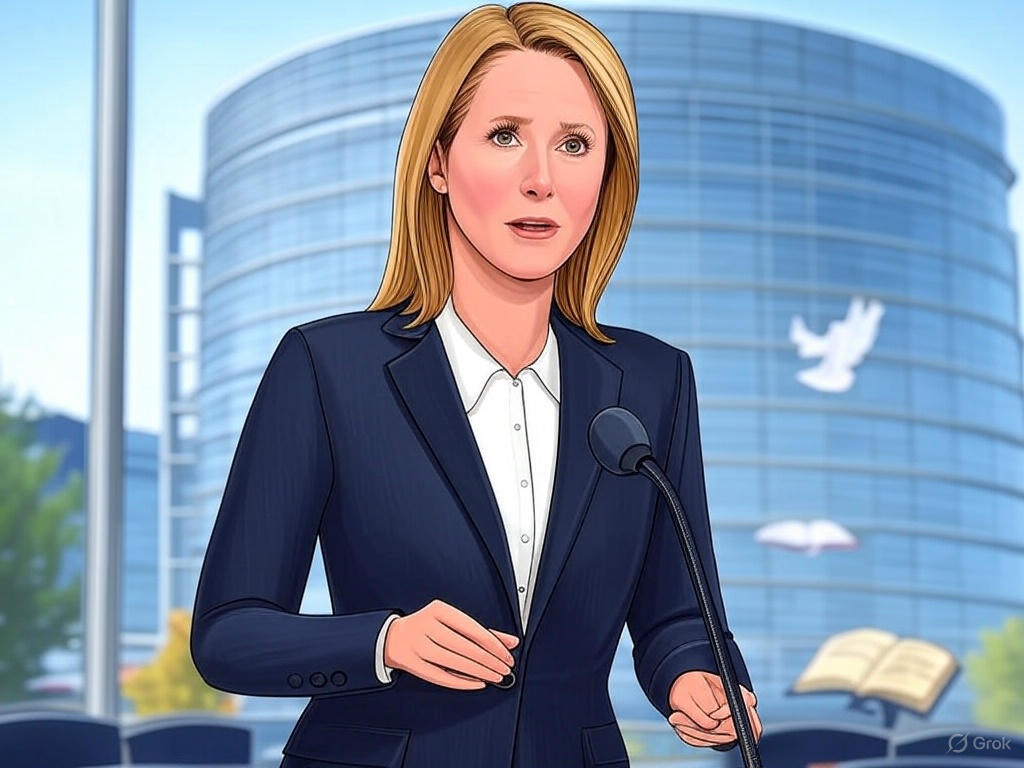
Strasbourg, April 1, 2025 – In a powerful address to the European Parliament plenary session on the 2024 Annual Report on Human Rights and Democracy in the World, High Representative and Vice-President Kaja Kallas underscored the European Union’s unwavering commitment to defending human rights and democracy amid a turbulent global landscape. Delivered on April 1, 2025, in Strasbourg, the speech highlighted both the mounting threats to the rules-based international order and the EU’s proactive efforts to counter them.
Kallas opened her remarks by thanking Rapporteur Isabel Wiseler Lima and other contributors to the Parliament’s report, before drawing on her recent address to the United Nations Security Council. She emphasized that the principles enshrined in the UN Charter—peace, prosperity, human rights, dignity, and development—are under unprecedented strain. “Eighty years on, we see these principles under heavy fire,” she said, pointing to violations of international law, democratic backsliding, and assaults on gender equality and media freedom.
The High Representative singled out Russia’s ongoing war against Ukraine as a stark example of this erosion, calling it “a direct challenge to the rules-based international order and an assault on sovereignty.” She also referenced the conflict between Israel and Gaza as a sobering reminder of the fragility of human rights in wartime. Closer to home, she noted the growing threat posed by authoritarian regimes, a concern echoed in the Parliament’s 2024 report.
Yet, amid these challenges, Kallas struck a note of cautious optimism. She cited the fall of the Assad regime in Syria in December 2024 as a historic turning point, ending 54 years of dictatorship. “There is hope, nonetheless,” she said, stressing that the EU must work to ensure the rights of all Syrians are protected during the country’s fragile transition.
A Steadfast Partner in Turbulent Times
Kallas outlined the EU’s robust response to global human rights crises, positioning the bloc as a reliable and predictable partner. In 2024 alone, the EU supported over 10,000 high-risk human rights defenders, adding to a total of 80,000 individuals aided since 2015. Just two weeks prior to her speech, the EU adopted a €349 million funding package to bolster human rights and democracy initiatives worldwide through 2027. This commitment, she said, extends to countering pushback against gender equality and the rights of women, girls, and LGBTIQ+ individuals.
The EU’s support for the United Nations human rights framework also took center stage. Kallas reaffirmed the bloc’s advocacy for the UN High Commissioner for Human Rights and its push for accountability through mechanisms like the International Criminal Court (ICC). “Respect for international humanitarian law by state and non-state actors, and accountability for violations committed, are the cornerstone for peace and security,” she declared. She revealed that she met with the ICC President in March 2025 to reinforce the EU’s backing, amid discussions on enhancing financial and diplomatic support for the Court.
The EU Global Human Rights Sanctions Regime, established in 2020, has proven a vital tool, with swift measures imposed in 2024 targeting human rights abusers in Russia, the Middle East, and North Korea. “This demonstrates our determination to strengthen our role in addressing serious human rights violations and abuses worldwide,” Kallas said.
Democracy in Action
Reflecting on 2024 as a “super election year,” with over 75 countries holding elections, Kallas praised the role of EU Election Observation Missions in safeguarding electoral integrity and democratic governance. She pledged continued support for parliaments, independent media, and democratic actors operating in hostile environments, promising close collaboration with the European Parliament in these efforts.
In her closing remarks, Kallas framed the defense of human rights as inseparable from the pursuit of peace. “Peace is not simply the absence of war; it is active cultivation of justice,” she said, emphasizing that human dignity and rights are foundational to lasting stability. She called on the EU to leverage its values as a strategic asset, fostering partnerships with third countries based on sustainable progress and mutual benefit.
A Call to Unity
Kallas concluded with a rallying cry for unity, urging the Parliament to stand firm against the erosion of the EU’s core principles. “The European Union is founded on peace, democracy, and unity,” she said. “We must make very clear that we will not tolerate the erosion of these rights and freedoms that really define us.”
As the High Representative prepares to release her own 2024 human rights and democracy report, her speech served as both a sobering assessment of global challenges and a resolute affirmation of the EU’s leadership in confronting them. With the European Parliament as a key ally, Kallas signaled that the bloc’s commitment to human rights remains a cornerstone of its identity—and its future.
Politics
Political Turmoil Spans Continents: Dutch “Ribbons Debacle” and Trump’s Third-Term Ambitions
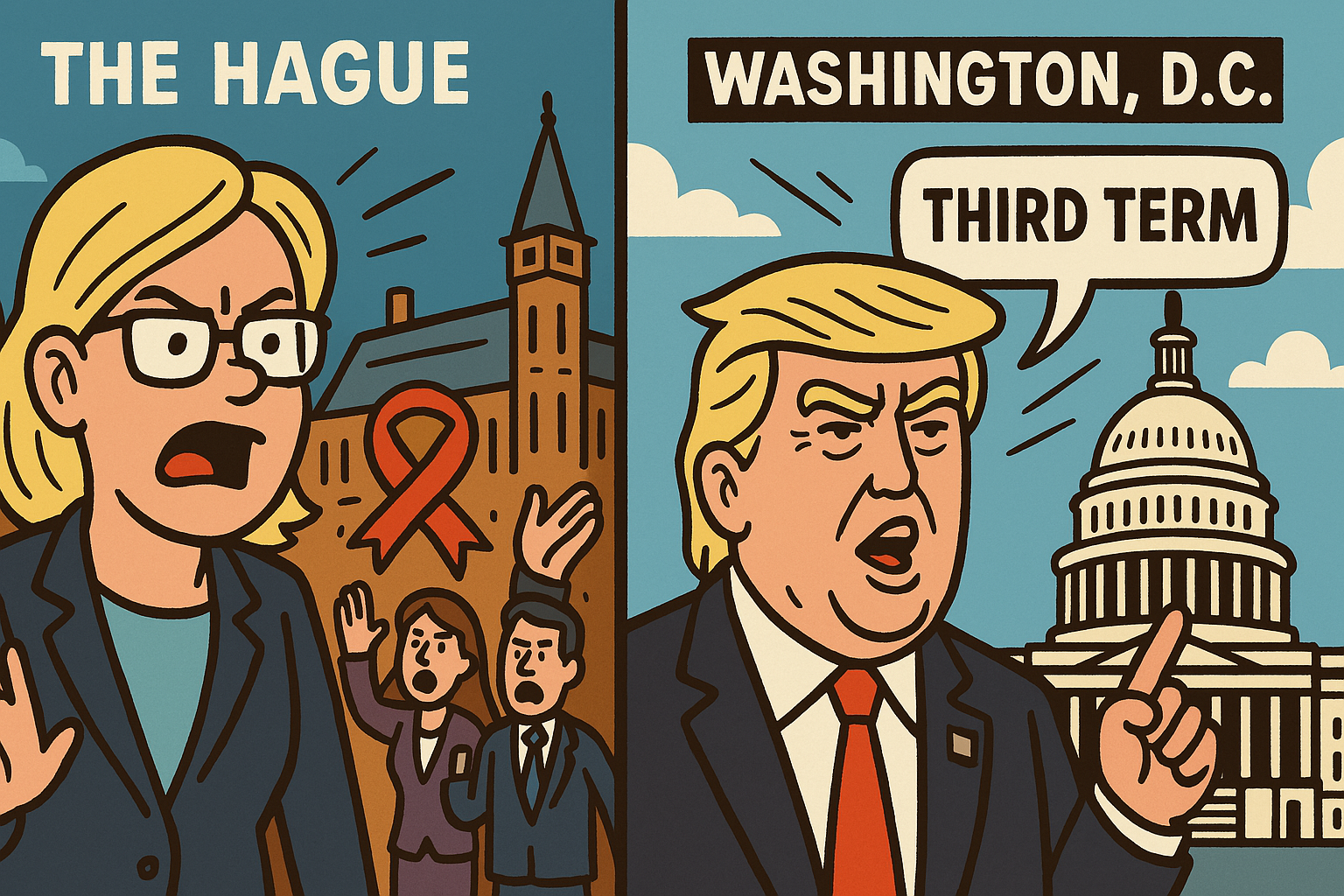
April 1, 2025 – From The Hague to Washington, D.C., political storms are brewing, shaking the foundations of governance on both sides of the Atlantic. In the Netherlands, a seemingly trivial dispute over ribbons has escalated into a full-blown confrontation between the Tweede Kamer and PVV Minister Marjolein Faber, threatening her tenure. Meanwhile, in the United States, former and current President Donald Trump has reignited constitutional debates by musing about a third term, while his administration purges career prosecutors perceived as disloyal.
The Netherlands: Ribbons Ignite a Firestorm
In The Hague, what began as a minor disagreement has spiraled into a high-stakes showdown. Minister Marjolein Faber, a prominent figure in the far-right Party for Freedom (PVV), finds herself at the center of controversy dubbed the “ribbons debacle.” Though details remain murky, the dispute reportedly stems from Faber’s decision to mandate—or perhaps ban—certain symbolic ribbons in official settings, a move critics in the Tweede Kamer, the Dutch House of Representatives, have branded as authoritarian overreach.
The clash has exposed deeper tensions between Faber’s hardline policies and the coalition government’s fragile unity. Opposition lawmakers accuse her of leveraging her position to push a divisive ideological agenda, while her supporters argue she’s defending national values against progressive excess. By Tuesday morning, the rhetoric had escalated to the point of action: a no-confidence motion against Faber was formally tabled, setting the stage for a contentious vote that could topple her from office.
“This isn’t just about ribbons—it’s about power, principle, and the direction of this country,” said one MP, speaking anonymously ahead of the debate. Political analysts suggest that even if Faber survives the motion, the episode could weaken the PVV’s influence within the coalition, with ripple effects for upcoming policy battles.
United States: Trump’s Third-Term Trial Balloon
Across the ocean, Donald Trump continues to dominate headlines with a provocative suggestion that has constitutional scholars scrambling for their textbooks. Speaking at a rally in Ohio on Monday night, the recently re-elected president floated the idea of seeking a third term, a notion that would defy the 22nd Amendment, which limits U.S. presidents to two terms. “I’ve done so much—maybe we need more time to finish the job,” Trump quipped to a roaring crowd, leaving it unclear whether he was serious or merely stoking his base.
The remark has reignited a perennial debate about executive power in America. Legal experts are divided: some argue the Constitution’s text is ironclad, while others point to historical precedents of bending norms—like Franklin Roosevelt’s four terms before the amendment’s ratification in 1951. Trump’s allies in Congress have already begun testing the waters, with one House Republican suggesting a repeal of the 22nd Amendment might be “worth discussing.”
Critics, however, see the comment as part of a broader pattern of norm-breaking. “This is a dangerous flirtation with autocracy,” warned Senator Elizabeth Warren (D-MA) in a statement Tuesday. Public reaction is similarly polarized, with social media ablaze over whether Trump’s musings are a masterstroke of political theater or a genuine threat to democracy.
Loyalty Purge at Justice
Adding fuel to the fire, the Trump administration announced the dismissal of several career Justice Department prosecutors this week, a move insiders say reflects a loyalty test gone nuclear. The fired officials, some with decades of service, were reportedly seen as insufficiently aligned with Trump’s agenda, particularly his calls to investigate political rivals. Attorney General nominee Mike Davis defended the decision, stating, “The president needs a team he can trust to drain the swamp.”
The purge has drawn sharp rebukes from legal circles and former DOJ officials, who warn it undermines the department’s independence. “This isn’t about loyalty—it’s about turning justice into a political weapon,” said Preet Bharara, a former U.S. Attorney ousted by Trump in 2017. Democrats in Congress are now vowing to investigate, though their leverage in a Republican-controlled Senate remains limited.
A Tale of Two Crises
While the Dutch “ribbons debacle” and Trump’s third-term gambit differ in scale and stakes, they share a common thread: the erosion of political norms under pressure from populist figures. In The Hague, Faber’s fate hangs in the balance as lawmakers weigh ideology against stability. In Washington, Trump’s provocations test the resilience of a constitutional framework already strained by years of partisan warfare.
As debates rage in both capitals, the coming days promise more drama. Will Faber weather the no-confidence storm? Can Trump’s third-term rhetoric translate into action? For now, the world watches as these parallel sagas unfold, each a microcosm of the turbulent politics defining 2025.
-
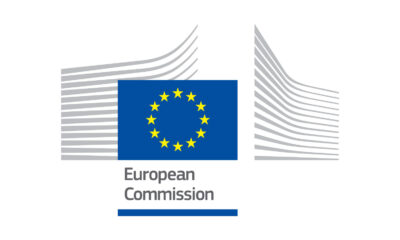
 Politics7 days ago
Politics7 days agoGetting EU ready to prevent and respond to crises
-

 EU & the World7 days ago
EU & the World7 days agoCould Litia Garr Be the Next Bachelorette? Update After Grant Ellis Breakup
-
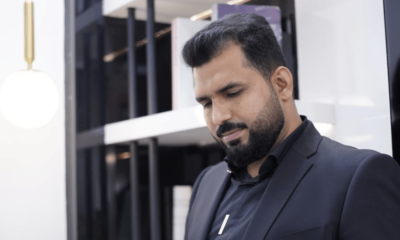
 EU & the World6 days ago
EU & the World6 days agoInnam Dustgir’s Approach to Public Relations
-
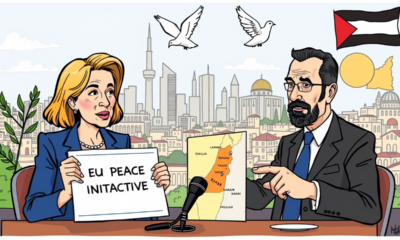
 Politics7 days ago
Politics7 days agoKaja Kallas Stresses EU’s Role in Israel-Palestine Crisis During Visit to Tel Aviv
-
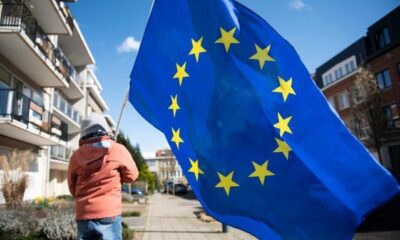
 Politics7 days ago
Politics7 days agoSurvey confirms Europe’s citizens want the EU to protect them and act in unity | News
-

 EU & the World7 days ago
EU & the World7 days agoWho Is Tulsi Gabbard? 5 Things to Know About the Director of National Intelligence
-

 EU & the World7 days ago
EU & the World7 days agoLady Gaga’s Mayhem Tour: Dates, Cities & Ticket Prices
-
Travel7 days ago
Cyprus is funding desalination plants for hotels to tackle tourism’s water shortage woes








